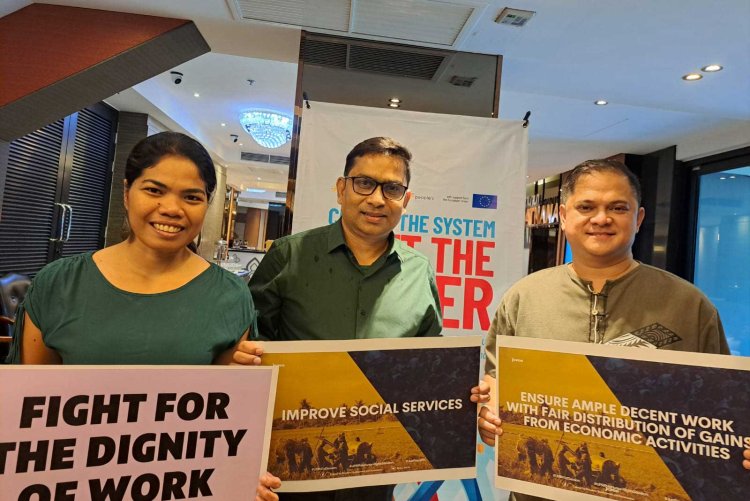Organised under the theme “Accelerating the recovery from the coronavirus disease (COVID-19) and the full implementation of the 2030 Agenda for Sustainable Development at all levels in Asia and the Pacific”, the 2023 edition of the APFSD focused particularly on assessing the region’s progress on the Sustainable Development Goals (SDGs) under review: SDG 6 (Clean water and sanitation); SDG 7 (Affordable and clean energy); SDG 9 (Industry. innovation, and infrastructure); SDG 11 (Sustainable cities and communities), and SDG 17 (Partnership for the Goals).
Throughout the Forum, trade unions actively raised workers’ demands for the implementation of industrial policies grounded on just transition, social dialogue, and labour rights that promote the creation of decent and climate-friendly jobs and ensure social protection.
Julius Cainglet of the Federation of Free Workers (FFW, Philippines) delivered the trade unions’ statement during the plenary session: “Towards the 2023 Sustainable Development Goals Summit, Ministerial Segment”. He urged governments to support the Global Accelerator on Jobs and Social Protection for Just Transitions as a key means to accelerate progress in the achievement of the 2030 Agenda, and emphasised that international labour standards must underpin national plans for jobs, universal social protection, and skills and community renewal.
Intervening as a panelist in the roundtable on SDG 17, Joy Hernández of ITUC-Asia Pacific highlighted the systemic issues and barriers in implementing this Goal, including illicit financial flows, tax and trade injustice, debt distress, and unmet Official Development Assistance (ODA) commitments. She also emphasised the need to put back workers and people at the centre of development, especially in light of the deepening corporate capture of the 2030 Agenda.
Despite a strong involvement in the APFSD and the People’s Forum that preceded it, the ITUC-AP delegation manifested its disappointment with the Forum’s draft report which they deemed was a step back from the more substantive and inclusive outcome document that was produced the previous year.


